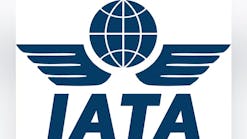Support for SAF
Among its objectives, the Inflation Reduction Act that President Joe Biden recently signed into law aims to reduce greenhouse gas emissions produced in the United States. The $430 billion bill, also known as H.R. 5376, intends to promote clean energy and includes five years of dedicated sustainable aviation fuel (SAF) tax provisions intended to encourage the production of the renewable fuel.
This support for SAF production has been applauded by key stakeholders in the aviation community.
The National Air Transportation Association (NATA), for example, released a statement noting that the organization has advocated for creation of a dedicated SAF Blender’s Tax Credit to stimulate investment in the nascent industry and provide economic parity with other renewable fuels.
“The sustainability measures included in the Inflation Reduction Act of 2022 represent a critical breakthrough in the business aviation industry’s goal to achieve net-zero carbon emissions by the year 2050. The SAF Blender’s Tax Credit and Clean Fuel Production Credit that President Biden has signed into law represent a five-year down payment on the policies necessary to scale up SAF production in line with industry demand,” Karen Huggard, vice president of government affairs at NATA, said in the statement after the bill’s passage.
After the bill was signed into law, the National Business Aviation Association (NBAA) noted in a statement that as of Jan. 1, 2023, a $1.25 per gallon credit will be available for each gallon of SAF sold as part of a qualified fuel mixture with a demonstrated lifecycle greenhouse gas (GHG) reduction of at least 50 percent compared to conventional jet fuel. The stand-alone SAF tax credit increases by one cent for each percentage point by which the lifecycle GHG emissions reduction of such fuel exceeds 50 percent, up to $1.75 per gallon.
“NBAA has long advocated for this blender's tax credit as a vital step in fulfilling our industry’s pledge to achieve net-zero CO2 emissions by 2050 under the Business Aviation Commitment on Climate Change,” said Ed Bolen, NBAA president and CEO. “Implementation of this credit marks genuine progress toward increasing SAF production, promoting greater availability at general aviation airports and reducing costs to end users.”
The bill also includes an extension on a 50-cents-per-gallon tax credit for alternative fuels and fuel mixtures; a $1-per-gallon tax credit for biodiesel and renewable diesel and an extension of the $1.01-per-gallon income tax credit for second-generation biofuel production through 2024, according to Alder Fuels.
“Public-private partnership is integral to scaling our renewable energy transition and this legislation represents a significant step forward. Rapid deployment of new biocrude pathways that can scale SAF production is critical to our sustainable future,” Alder Fuels CEO Bryan Sherbacow said after the U.S. Senate passed H.R. 5376.
As a drop-in solution, the idea of using SAF to reduce GHG emissions has already gained momentum across the aviation industry. In many cases, SAF is already in use. However, producing enough SAF to make a significant impact has been a challenge.
Over the last several years, the airline industry and renewable fuel producers have been seeking federal policy to promote the increased production of SAF to make it more widely available. The Inflation Reduction Act is a notable success in achieving this government support.




